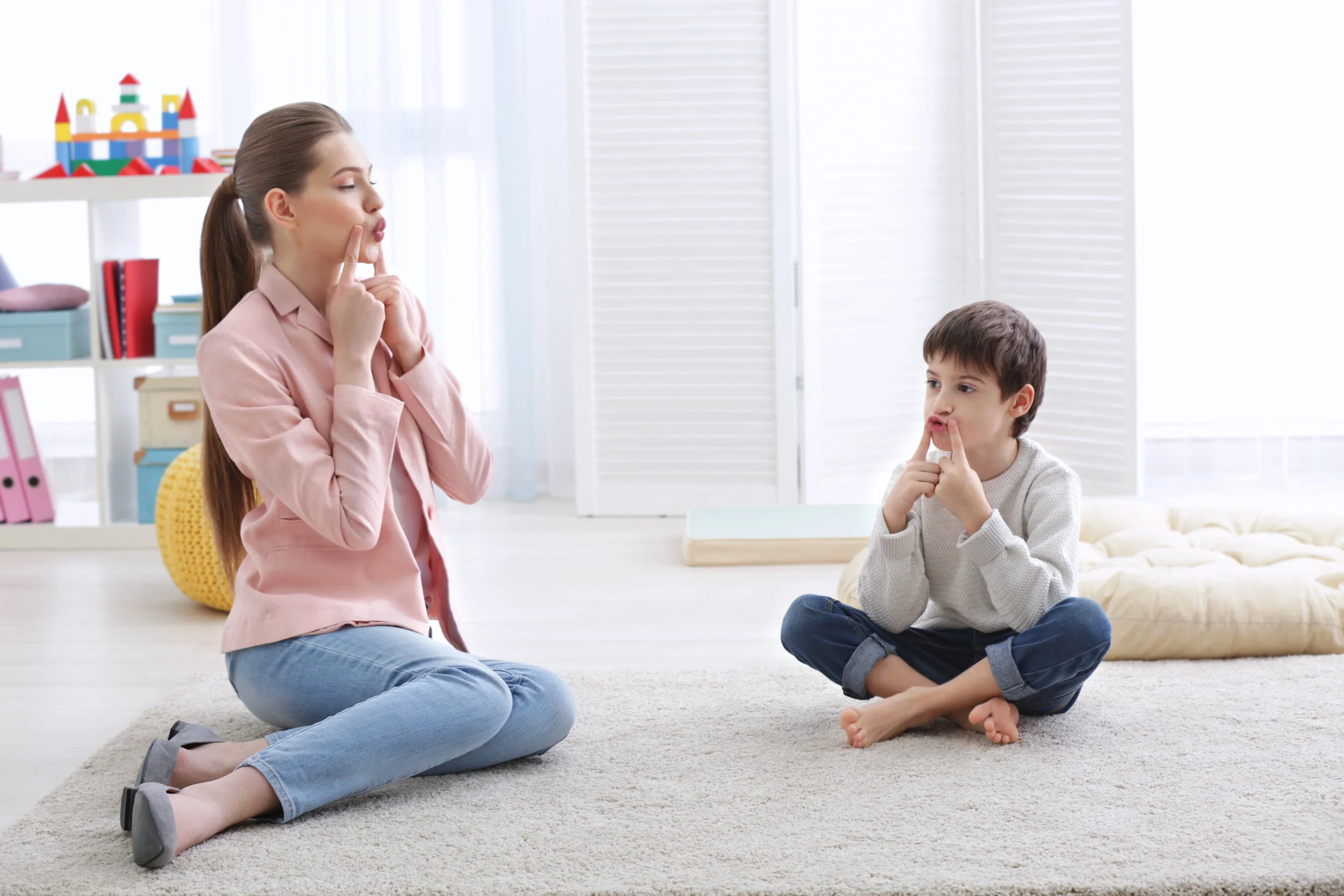“When should my child be speaking in full sentences?” “Is this common for his/her age?” "Should I be able to understand most of what my child says at this age?" - These are common questions speech therapists receive from concerned parents of young children. While we know that all children develop differently and at different paces, there are specific guidelines to help parents monitor their child's development.
The following is a list of clinical clues that are cause of concern in a child's development of speech and language in various age groups.
A referral to a speech language pathologist is recommended if a parent observes any of these causes of concern:
+ At 12 months old:
- easily upset by sounds that wouldn’t upset others
- doesn’t clearly indicate request for object while focusing on object
- doesn’t coordinate action between objects and adults
- lack of consistent patterns of reduplicative babbling
- lack of responses indicating comprehension of words or communicative gestures
+ At 18 months old:
- lack of communicative gestures
- does not attempt to imitate or spontaneously produce single words to convey meaning
- child does not persist in communication
- limited comprehension vocabulary (understands less than 50 words)
- limited production vocabulary (speaks less than 10 words)
+ At 2 years old:
- reliance on gestures without verbalization
- unable to follow 2-step directions
- limited production vocabulary (speaks less than 50 words)
- does not use any two-word combinations
- limited consonant production
- largely unintelligible speech
- compulsive labeling of objects in place of commenting or requesting
- regression in language development, stops talking, or begins echoing phrases heard
+ At 3 years old:
- words limited to single syllables with no final consonants
- few or no multi-word utterances
- uses less than 500 words
- does not demand a response from listeners
- asks no questions
- poor speech intelligibility
- frequent tantrums when not understood
- echoing or “parroting of speech” without communicative intent
+ At 4 years old:
- uses less than 1000 words
- doesn’t combine words into 4-6 word sentences
- doesn’t ask a lot of questions
- doesn’t categorize objects (i.e., banana is food)
- doesn’t tell stories with a beginning and an end
- isn’t able to match letters with sounds they represent
- follows three or more step directions
+ At 5 years old:
- doesn’t use complete sentences that are grammatically correct doesn’t use pronouns correctly: he/she, him/her, they them
- unable to communicate wants and needs
- unable to complete 3-step directions
- short attention span
- doesn’t understand spatial concepts
- doesn’t use past, present and future tense correctly
- unable to describe recent events in correct sequential order
- doesn’t name and describe pictures
Or if any of the following are noted
your child is frustrated when trying to communicate
he/she has a hard time in social situations with other children
his/her literacy skills are not age appropriate
it is hard to understand him/her (especially for unfamiliar listeners)
he/she can’t make their needs known
sounds/words are repeated often

